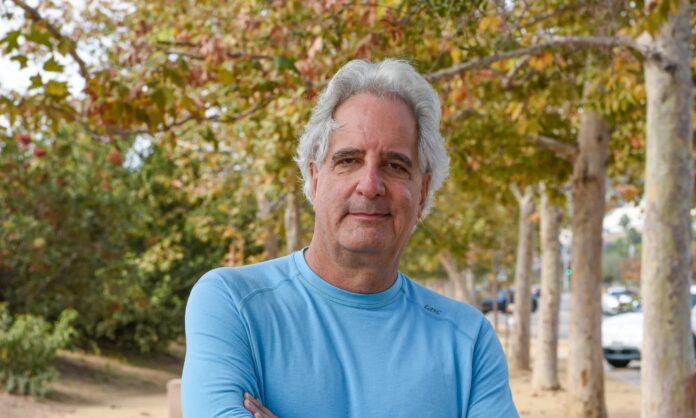Many of you reached out this past week, moved by my suggestions for transforming our community amid this ongoing crisis. I was encouraged at this week’s council meeting—our city is trying, but trying alone isn’t enough. We need to convert good intentions into concrete action.
On March 9, I’ll be the Keynote Speaker at The Lifesavers Conference, the largest gathering of highway safety professionals in the United States. I don’t mention this seeking recognition, but to illustrate a crucial point: When our Emily was murdered on PCH, my wife and I channeled our grief into purpose. Ellen founded The Emily Shane Foundation (emilyshane.org), and I became an advocate for road safety. Before that tragic day, I had no background in transportation policy. This transformation happened because ordinary people find extraordinary resolve when something matters enough.
Did you know who Haylynn Conrad was a year ago? Probably not. She decided she’d had enough and wanted to make a difference—so she did. You can do the same. There is a fire burning in our community right now—not of flames, but of opportunity and urgency. Will you let it consume you into action, or will you watch from a safe distance as it dies out?
As we push for rebuilding, we must demand intelligence over expediency. The Getty Center and Pepperdine University prove that proper planning and materials work. They survived not by luck but through deliberate design, prioritizing safety. Yet our neighbors fighting to rebuild with these same proven methods face years of bureaucratic resistance. Thisisn’t just frustrating—it’s dangerous and economically devastating.
I’ve spoken about comprehensive solutions before. Now I’m asking: What are YOU going to do about it? The time for nodding in agreement is over. While the city is seeking assistance from the governor, it’s crucial that we include essential resources in our request. The Army Corps of Engineers has a wealth of experience in developing innovative infrastructure in areas impacted by disasters. Their participation could elevate our recovery from fragmented repairs to holistic solutions—if we advocate for it strongly and consistently. We have a voice; let’s make it heard. We are Malibu, recognized globally. Let’s remember this and leverage it to our advantage.
YOU NEED TO ATTEND the council meeting. Not to watch—to participate. Bring specific, researched proposals. Reference successful models from communities like Portugal’s Madeira region or Spain’s Costa Brava. Form small groups with your neighbors focused on specific issues. Three dedicated citizens tackling water management solutions can accomplish more than thirty expressing general frustration.
Document the obstacles. Every permit delay, every rejected application for safety improvements, every inconsistent enforcement of codes—these aren’t isolated incidents but symptoms of a broken system that will continue failing us until we force change.
The mudslides that recently blocked PCH are just the latest chapter in a disaster story that will keep repeating until we rewrite it. Every rainstorm, every earthquake tremor, and every wildfire season reminds us that halfway measures lead to complete failures.
I experience anger when I drive by vacant lots that were once home to families. I feel a deep sense of desperation as I witness temporary housing turning into a long-term solution. Yet, I also feel a strong determination when I recall how other communities have rebuilt after disasters. Why not us? Are we missing their courage? Their vision? Their tenacity? Absolutely not!
Right now, your neighbors are fighting battles alone. They are trapped in permit purgatory, struggling with insurance denials, and navigating a rebuilding process designed to exhaust rather than assist them. How many more must abandon our community before we say “enough”?
I want your blood to boil with possibility. Picture walking along a redesigned PCH with dedicated bike lanes and pedestrian paths. Envision water taxis connecting our coastal points when landslides inevitably block the highway. See homes standing resilient against the subsequent fire rather than reduced to ash. This isn’t fantasy—it’s happening in communities worldwide that refused to accept the status quo.
The difference between triumph and continued tragedy isn’t knowledge—it’s action. When residents demanded it, Colorado transformed its building codes in 18 months. Austin implemented its wildland-urban interface code in just one year when community pressure became unstoppable.
The time for mourning what we’ve lost must give way to building what we need. But triumph requires more than hope—it demands sustained, strategic pressure from people just like you.
We stand at a crossroads between rebuilding the same vulnerable structures on the same dangerous foundations—or creating something that honors those we’ve lost by protecting those who remain. Your voice, presence, and persistence are not optional—it’s essential.
Today, we choose to become the community that future disaster-struck towns look to for inspiration or remain the cautionary tale of what happens when good people wait for someone else to fix what’s broken.
The time for mourning what we’ve lost must give way to building what we need: the power to transform tragedy into legacy in your hands. What will you do with it?
You can reach me at 21milesinmalibu@gmail.com

